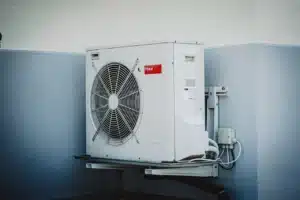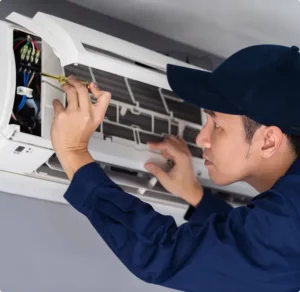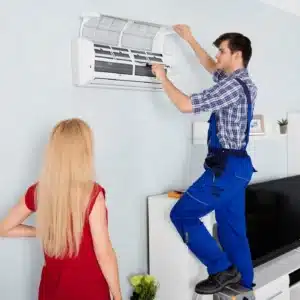Energy Efficiency of Ductless HVAC Systems
When it comes to maintaining comfort and managing energy costs...
Maintaining the right indoor humidity levels is a crucial aspect of creating a comfortable and healthy living environment. High or low humidity can impact both your well-being and the condition of your home. In this article, we’ll delve into factual strategies for effectively managing indoor humidity levels, providing practical insights to ensure optimal comfort and health.
When faced with excess humidity, a dehumidifier can be a valuable asset. These devices are designed to remove excess moisture from the air, helping to prevent issues such as mold growth, musty odors, and discomfort. Place dehumidifiers in areas prone to high humidity, such as basements or bathrooms, for targeted moisture control.
Adequate ventilation is essential for controlling indoor humidity. Ensure that your home is well-ventilated by using exhaust fans in bathrooms and kitchens, opening windows when weather permits, and promoting airflow throughout your living spaces. Good ventilation helps expel humid air and introduces fresh, drier air into your home.
Your air conditioning system plays a significant role in humidity control. Ensure that your AC unit is well-maintained, including regular filter changes. Modern HVAC systems often include humidity control features that help regulate moisture levels in the air. Regular maintenance ensures these features operate effectively.
Maintaining an optimal indoor temperature can help control humidity levels. Cooler air holds less moisture than warmer air. Setting your thermostat at a moderate temperature can reduce the risk of excess humidity. Consider using programmable thermostats to maintain consistent temperatures throughout the day.
Incorporate moisture-absorbing materials in areas prone to high humidity. Desiccants, such as silica gel or calcium chloride, can be strategically placed in closets, cabinets, or other enclosed spaces to help absorb excess moisture. These materials are particularly useful in preventing issues like mold and mildew.
Unwanted outdoor air entering your home can contribute to humidity issues. Inspect and seal any air leaks, including gaps around windows and doors. Proper insulation and sealing can help maintain a more controlled indoor environment, preventing the intrusion of humid outdoor air.
Some houseplants naturally absorb excess moisture through a process called transpiration. While not a primary solution, incorporating a few houseplants in well-lit areas can contribute to a balanced indoor humidity level. Plants like spider plants, peace lilies, and snake plants are known for their humidity-regulating properties.
In areas with excessively dry air, especially during the winter months, a humidifier can be beneficial. Humidifiers add moisture to the air, preventing issues like dry skin, irritated eyes, and respiratory discomfort. Ensure proper maintenance to prevent the growth of mold and bacteria in the humidifier.
Effectively managing indoor humidity levels is essential for creating a comfortable and healthy living space. By incorporating strategies such as using dehumidifiers, ensuring proper ventilation, maintaining your HVAC system, and employing moisture-absorbing materials, you can strike a balance that promotes optimal indoor conditions. These practical measures not only enhance comfort but also contribute to the longevity and well-being of your home and its occupants.

When it comes to maintaining comfort and managing energy costs...

In Florida, where air conditioning is essential for comfort year-round,...

In Florida’s sweltering heat, a reliable air conditioning system is...

In Florida’s hot and humid climate, HVAC systems are essential...

Florida’s warm climate brings many advantages, but it also means...

When it comes to keeping your home comfortable in Florida’s...